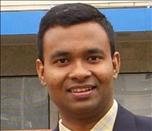As military and despotic regimes pave way for democratic rule in the Arab world, western commentators are puzzled by the continuation of Commodore Frank Bainimarama as Prime Minister of Fiji.
Five years had passed since he took power but the classic western democratic regime with regular elections has not occurred in Fiji.
The fact is that Fiji has become relatively a safer place for both native Fijians and Indo-Fijians.
Mr Bainimarama spelt out the transition path to democracy in his New Year address on January 1. “To facilitate this consultation process, public emergency regulations will cease on January 7, 2012,” he said, indicating an end to the strictures imposed in April 2009.
The South Pacific region and indeed the world have experienced a number of changes over the past three years.
The Chinese connection
Increasingly isolated by regional powers such as New Zealand and Australia in the Pacific Islands Forum, Fiji has started to court China through its ‘Look North policy.’
Observers have been baffled by the reluctance of the New Zealand and Australian governments to be patient with the transition of Fiji to a democratic regime in 2014, as promised by Mr Bainimarama.
His commitment and integrity to have a working constitution under which elections will be scheduled are beyond any doubt.
This commitment and the fact that Fiji has become a better place to live have not seen any popular unrest for the past five years.
It is also beyond doubt that these five years have been the most peaceful in Fiji since May 1987, when Colonel Sitiveni Rabuka staged the first of the many coups
Further, in the last five years, tourism in Fiji has been at all-time high, somewhat legitimising the military regimes.
On the other hand, if the policy makers in New Zealand and Australia do not understand and be patient with Fiji, they would precipitate a long-term strategic problem for both countries and the US, if Fiji decides to allow Chinese naval bases in South Pacific.
This point was buttressed in the book, Red Star over the Pacific published by the United States Naval Institute.
It is true that the Cold War between the US and China has started in the Asia Pacific with its extension in South Pacific.
The latter, rich in minerals, would provide opportunity for energy-starved China to have drilled process in the region in general and Fiji in particular.
 The high point of the Cold War syndrome was the announcement of 2000 US Marines to be stationed in Australia during the visit of US President Barack Osama to Australia.
The high point of the Cold War syndrome was the announcement of 2000 US Marines to be stationed in Australia during the visit of US President Barack Osama to Australia.
There seems to be no logic for the annual Pacific Islands Forum to be used as a platform for ‘Fiji bashing.’
The irony is that the Forum secretariat is based in Fiji. It will be great if the regional powers in South Pacific do not push Fiji on the path to democracy, as they have no issues with China for its non-adherence to democracy and slim record on human rights.
Constitutional reforms
Further, even the epitome of the UN as the international multilateral organisation does not explicitly state the purpose of promoting democracy.
From an internal point of view, Mr Bainimarama has a better chance of wearing civilian attire ahead of the September 2014 election, which of course is not a bad thing. Further, a constitutional consultation process is expected to draw a new Charter in September 2013.
The military form of governance in Fiji provides a better alternative than the earlier tried and tested politicians whose reputation including those of Indian-origin did not go well either with the Indo-Fijians or the native Fijians.
With his popularity intact, Mr Bainimarama’s challenge will be to help draft a constitution that will work.
Balaji Chandramohan, a postgraduate in Journalism from the Waikato University, with an abiding interest in the South Pacific, is our correspondent based in New Delhi, India.




